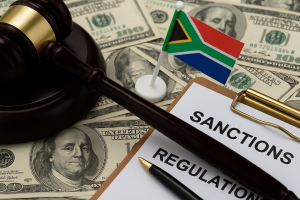Managing personal debt in South Africa is an essential skill for maintaining financial health and achieving long-term goals. Whether you are struggling with credit card balances, personal loans, or medical bills, a sound strategy can help you regain control. This guide will provide you with practical tips to effectively manage your obligations and secure a stable financial future.
Living in South Africa presents unique economic challenges, making it crucial to be mindful of how debt is handled. By following the advice in this article, you’ll be equipped to tackle your financial burdens head-on and pave the way for a brighter, debt-free future.
Establishing a Budget

Creating a budget is a vital first step in managing your financial responsibilities. Begin by listing all sources of income and then detail your monthly expenses, including fixed costs like rent and variable costs such as groceries. This will allow you to see where your money is going and identify areas where you can cut back.
A well-constructed budget not only helps you prioritize spending but also enables you to allocate funds towards repaying your dues. Use budget tracking apps or spreadsheets to keep a close eye on your financial activities. This discipline will go a long way in curbing unnecessary expenditures and facilitating timely repayments.
Remember, the goal is to create a surplus each month that can be directed towards your debts. Cutting down on discretionary spending, such as dining out or entertainment, can free up funds to meet your financial obligations more efficiently.
Tracking Your Expenses
Maintaining a detailed record of your daily expenditures is an excellent way to stay accountable. Keeping a log of every purchase, no matter how small, will highlight spending patterns and unnecessary costs. This visibility can be eye-opening and serve as a guide to making more informed financial decisions.
Utilize digital tools and apps that link to your bank accounts for real-time tracking of transactions. By doing so, you can automatically categorize expenses and review them in a structured manner. This makes it simpler to identify areas where cuts can be made to free up more money for debt repayment.
Regularly reviewing your spending habits will keep you focused and committed to your budgeting goals. It also enables you to make adjustments as needed, ensuring that you stay on track with your financial plan.
Prioritizing Debt Payments
When it comes to repaying what you owe, it is crucial to prioritize. Start by making a list of all your debts, the interest rates associated with each, and their minimum monthly payments. This will give you a clear picture of what needs to be addressed first.
Focus on paying off high-interest debts as these can quickly balloon out of control. Applying the bulk of your available funds to these obligations will minimize the amount of interest accumulated over time. Simultaneously, ensure that you make at least the minimum payments on all other debts to avoid penalties and further financial strain.
Another effective strategy is the snowball method, which involves paying off the smallest debts first. This psychological boost can motivate you to continue tackling larger debts with increased confidence and determination.
Exploring Debt Relief Options
Sometimes, despite your best efforts, managing debt might feel overwhelming. In such cases, exploring debt relief options can provide much-needed support and guidance. South Africa offers several avenues to consider, each with its own set of benefits and regulations.
Debt counselling is one such option, where trained professionals assess your financial situation and negotiate with creditors on your behalf. This can lead to reduced interest rates and extended repayment terms, making your debt more manageable.
Another route is debt consolidation, where multiple debts are combined into a single loan with a lower interest rate. This simplifies the repayment process and can reduce the overall financial burden. Ensure that you fully understand the terms and conditions before opting for consolidation.
Debt Counselling
Debt counselling, a legal process regulated by the National Credit Regulator (NCR), is designed to help over-indebted consumers. A qualified debt counsellor will review your financial situation, create a repayment plan, and negotiate with creditors to lower interest rates and monthly payments.
This process aims to provide immediate relief while still upholding your responsibility to repay your obligations. It’s an excellent option for those who are struggling to manage their finances and need structured support to get back on track.
Remember, the goal of counselling is not just to solve immediate problems but to set you on a path to long-term financial stability. This can be achieved through education, guidance, and a comprehensive plan tailored to your specific needs.
Debt Consolidation
Debt consolidation simplifies repayment by combining multiple debts into one loan, ideally at a lower interest rate. This approach reduces stress with a single monthly payment, enhancing focus on debt clearance.
Before consolidating, compare financial products and understand new loan terms. While beneficial, discipline prevents accruing new debt during repayment. Consulting financial experts is vital for aligning consolidation with long-term goals and current finances.



